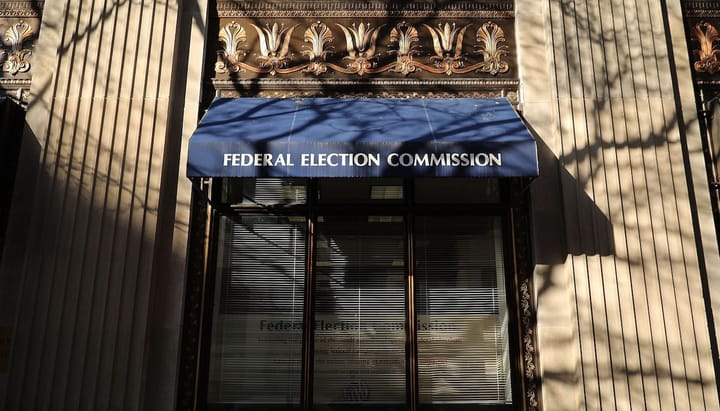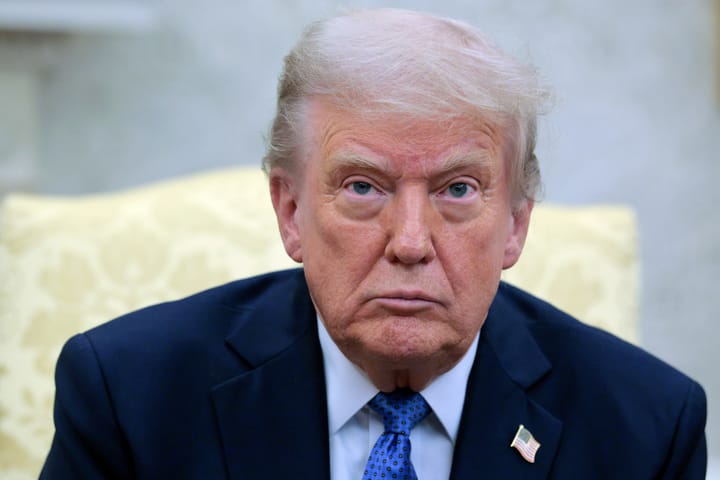President Trump tried to fire Ellen L. Weintraub, the chair of the Federal Election Commission, as the FEC is considering complaints involving the 2024 Trump campaign and Elon Musk’s pro-Trump super PAC. Election law watchdogs say Trump’s move is not only unprecedented in the history of the FEC, but could also be a violation of federal law governing independent agencies.
Weintraub, a longtime Democratic commissioner of the FEC, yesterday posted on Bluesky and X, “Received a letter from POTUS today purporting to remove me as Commissioner & Chair of @FEC. There’s a legal way to replace FEC commissioners-this isn’t it.”
In comments to the New York Times, Weintraub said she was considering her options in response, and said that she wasn’t surprised to be targeted by the Trump administration. She said she had publicly raised how the FEC’s structure of six commissioners, no more than three of which can be from the same political party, ensures 3-3 gridlock on enforcement matters, including ones involving the president’s campaigns.
Daniel I. Weiner, director of the Elections and Government Program at the Brennan Center for Justice and a former FEC staffer, told Sludge, “It has long been accepted that since the FEC is an independent agency, with a highly sensitive mission, its commissioners can only be removed for cause. The president's communication did not invoke any cause for the removal. To say that the president can remove FEC commissioners for any reason is unprecedented, and in my view highly dangerous.”
Commissioners are appointed to six-year terms and may remain on the FEC, as Weintraub has since her term expired in 2007, until the president nominates a member and the Senate confirms them. With three Republican-appointed commissioners already on the FEC, Weintraub’s replacement could not be a Republican. During the first Trump White House, Weintraub used her public platform to criticize the administration’s statements, like those by the president alleging widespread voter fraud. As commissioner, she has proposed stronger transparency rules for the sources of funding behind “dark money” online political ads. The FEC website highlights Weintraub’s record of support for “meaningful campaign-finance law enforcement and robust disclosure.”
The FEC canceled its scheduled Feb. 13 open meeting. Its next meetings would be on Feb. 27 and March 13.
Weiner said in a Bluesky thread that the FEC was preparing to rule on dozens of complaints from the 2024 election, some involving Trump and Musk:
Also noteworthy: the president is trying to fire the FEC’s Democratic chair when it is set to rule on dozens of complaints from the 2024 election — including complaints against Trump and Elon Musk (who spent almost $300M to support his campaign) and complaints Trump filed against Harris + the media
— Dan Weiner (@danw329.bsky.social) 2025-02-07T01:22:42.450Z
While open FEC enforcement cases are kept confidential until they are closed, some complaints involving Trump and Musk have been published by complainants:
- In July, the Democratic super PAC Priorities USA action filed a complaint against Musk’s America PAC for running ads consisting of repurposed Trump campaign content.
- In August, the Democratic-aligned group End Citizens United filed a complaint against the Trump campaign and Musk’s X over an online event they allege was an impermissible corporate in-kind contribution.
- In October, the watchdog Public Citizen filed a complaint over Musk and his America PAC’s $1 million giveaways to voters in swing states, which the group says runs afoul of federal law against paying people to register and vote.
The Trump campaign also filed FEC complaints against their rival, former VP Kamala Harris’ campaign:
- In July, the Trump campaign filed a complaint arguing that Harris should not be allowed to take over campaign funds after former President Joe Biden dropped out of the race.
- In early November, the Trump campaign filed a complaint alleging illegal in-kind contributions by the Washington Post to Harris’ campaign through its advertising campaigns.
Last August, Weintraub dissented from the commission’s 4-1 decision regarding an advisory opinion over how super PACs and campaigns can collaborate on joint fundraising committees; Biden administration nominee Dara Lindenbaum joined the panel’s three Republicans in that opinion. Weintraub wrote that the FEC opinion erodes the wall that should divide candidates from the super PACs, which can accept donations of unlimited size, backing their runs for office.



